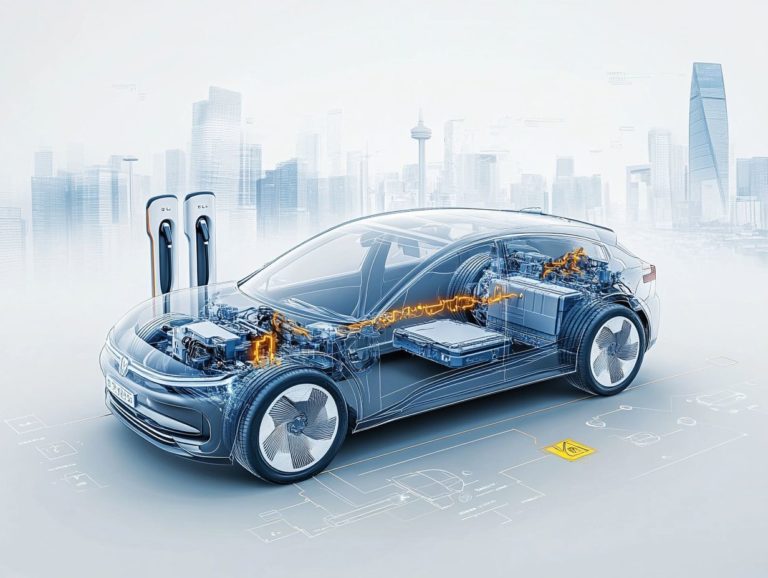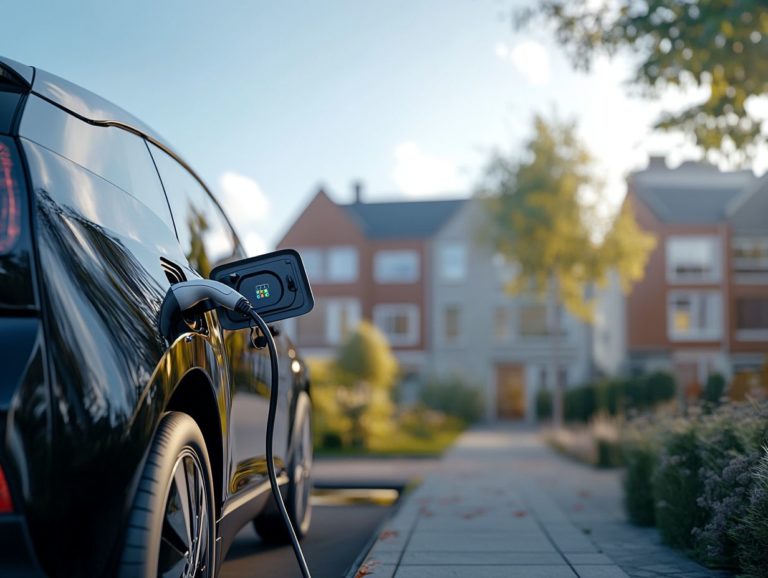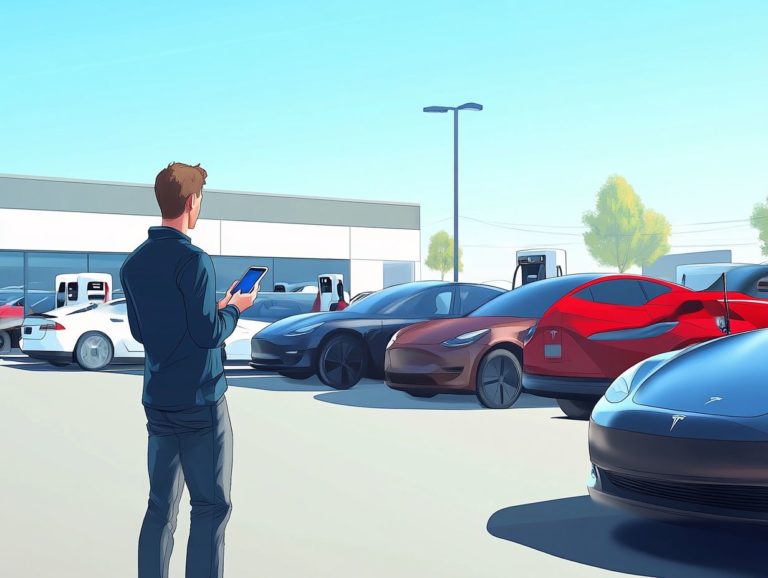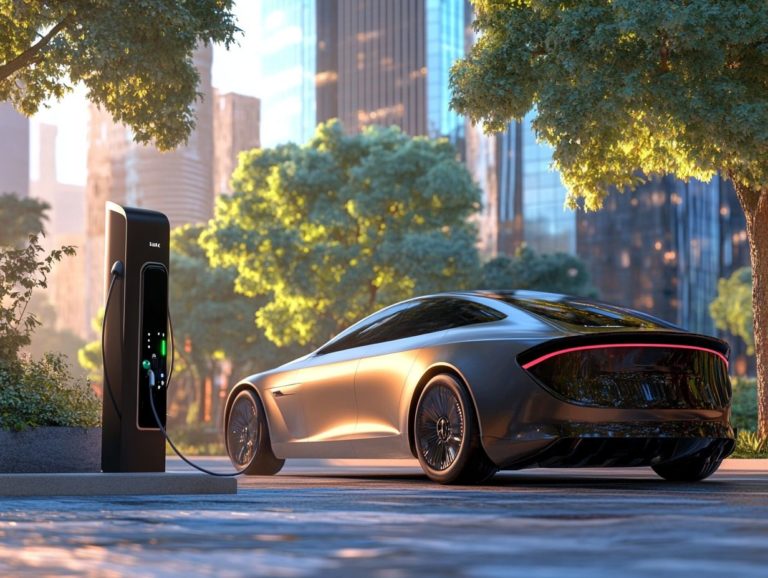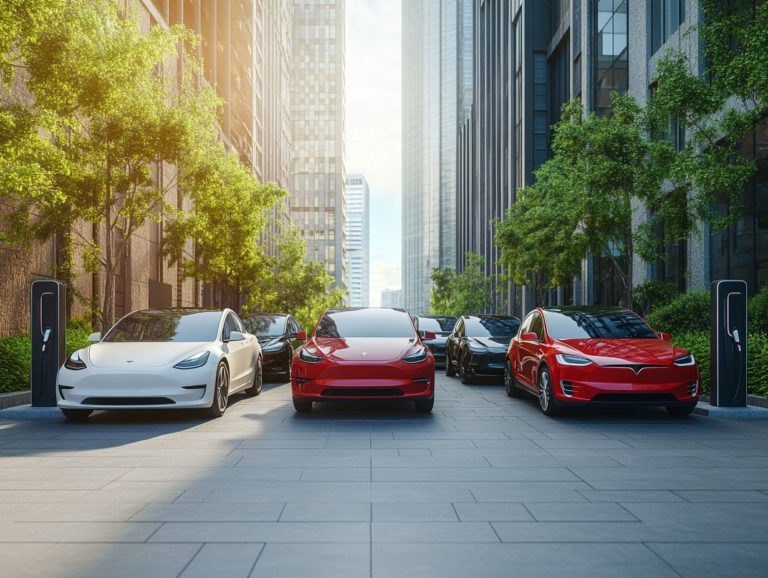What Are the Common Charging Issues with EVs?
Electric vehicles (EVs) are gaining traction like never before. However, the transition to greener technology brings its own set of challenges.
You may encounter issues such as slow charging speeds and compatibility concerns. These can certainly dampen the overall EV experience.
This article delves into common charging hurdles and presents practical solutions. It includes the latest advancements in charging technology and the expansion of infrastructure.
Whether you’re a seasoned EV owner or contemplating the switch, understanding these challenges and their solutions is crucial. This knowledge ensures a seamless and enjoyable journey.
Contents
Key Takeaways:
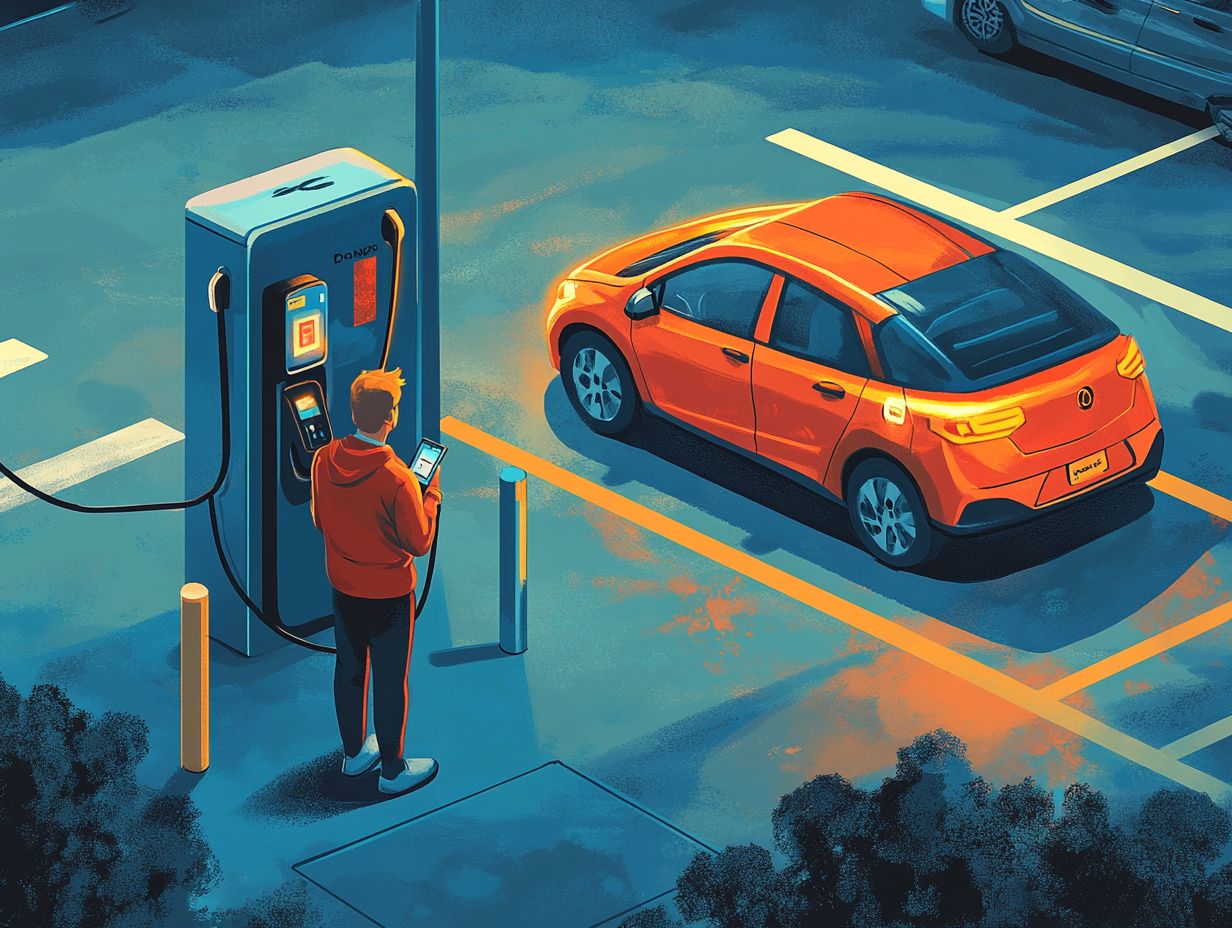
- Slow charging can be an issue, but new technology is reducing wait times.
- Range anxiety is common among EV drivers, yet expanding charging networks are offering more options.
- Compatibility issues can arise, but improvements in technology are simplifying the charging process.
Types of EV Charging
In the dynamic realm of electric vehicles (EVs), understanding the diverse array of charging options is crucial for both newcomers and experienced EV enthusiasts alike. Whether you re exploring home charging solutions or navigating extensive public charging networks, the variety of methods available can cater to your specific needs.
This variety enhances your overall experience while effectively addressing issues like slow charging and range anxiety.
Each charging type brings its own set of advantages and challenges. These factors influence charging time and compatibility with different electric vehicle models, including popular options like the Tesla and Nissan Leaf.
Common Charging Issues
As an electric vehicle owner, you may face several common charging challenges. Understanding what are the most common electric vehicle repairs can help alleviate concerns and enhance your driving experience.
Issues like slow charging times and compatibility hiccups with charging cables or stations can lead to frustration. If you’re facing problems, you might wonder what to do if your EV battery is not charging, which can potentially fuel that all-too-familiar range anxiety.
The strength of the charging network also affects your confidence in EV technology.
Slow Charging
Slow charging remains one of the most significant concerns as an electric vehicle owner. This often arises from inadequate charging speeds at home or public stations. It can lead to frustratingly long waits when you need to quickly recharge your vehicle amidst a busy schedule, but understanding common myths about electric vehicles can help alleviate some of these fears.
The inherent limitations of current charging technology, such as lower wattage outputs and outdated infrastructure, add to the problem. Many public stations still rely on aging equipment that struggles to deliver optimal power levels.
You might run into compatibility issues with different plug types. Don t let these hurdles hold you back from the exciting world of EVs!
To tackle these issues, investing in faster charging stations and developing next-generation technologies like ultra-fast chargers could vastly improve your experience.
Collaborative efforts among automakers, energy providers, and municipalities are essential. They are vital for building a more robust and efficient charging network that meets the demands of the ever-growing electric vehicle market.
Range Anxiety

Range anxiety is a common concern for electric vehicle owners. It often arises from insufficient charging stations and worries about running out of battery without nearby options.
This fear can undermine your confidence in switching to electric vehicles. Many hesitate to choose electric due to the worry of being stranded in unknown areas.
Tackling these concerns requires a comprehensive strategy. Expanding charging networks and promoting user-friendly apps like VOOL, which provide real-time information on charging station availability, can help.
By focusing on accessibility and enhancing the charging experience, manufacturers and policymakers can boost consumer confidence, making it easier for you to embrace the future of electric mobility.
Charging Infrastructure Limitations
The limitations of charging infrastructure create challenges for electric vehicle owners. Insufficient charging stations, especially in rural or underserved areas, hinder reliable public charging options.
The current charging networks often lack connectivity and coordination. Many charging locations do not provide real-time updates on station availability, making it difficult for you to plan your journeys.
Outdated charging technology can lead to slower charging speeds, deterring potential EV buyers. Investing in better infrastructure, including fast and reliable charging stations, will support a sustainable increase in electric vehicle adoption.
Compatibility Issues
Compatibility issues can be frustrating for your electric vehicle charging experience. Differences in charging cables and technologies among various EV models create confusion and inconvenience.
To ensure a seamless charging experience, it’s crucial to understand different charging protocols like CCS and CHAdeMO, which are various types of charging connectors. These technologies aren’t always compatible, leading to wasted time looking for the right charger.
When selecting charging cables and smart chargers, prioritize durability, power rating, and compatibility with your specific EV model. By evaluating these aspects, you can enhance your charging experience and minimize hassles.
Solutions for Charging Issues
Addressing the charging challenges faced by electric vehicle owners demands innovative solutions. Building robust infrastructure and accommodating diverse charging systems is vital for enhancing consumer confidence.
Investing in better infrastructure will make charging easy for everyone. With improvements, you can look forward to a thrilling and hassle-free driving experience.
Improvements in Charging Technology

Improvements in charging technology are crucial for enhancing the efficiency and convenience of your EV charging experience. Innovations like smart chargers and faster charging protocols are leading the charge, significantly reducing charging time while optimizing battery management and enhancing overall vehicle performance.
Not only do these advancements cut down on your wait times at charging stations, but they also tackle common issues like battery overheating and energy losses during the charging process. Smart chargers use real-time data to adjust their charging patterns based on your usage habits and grid demands, maximizing energy efficiency.
For example, cutting-edge battery management systems provide precise tracking of battery health and charge cycles. This extends battery lifespan and improves safety. Enjoy a seamless charging experience, enabling you to travel longer distances with confidence and a reduced environmental footprint.
Expanding Charging Infrastructure
Expanding the charging infrastructure is essential for supporting the growing adoption of Electric Vehicles while alleviating concerns about range anxiety and charging issues. By increasing the number and accessibility of public charging stations, you can significantly boost consumer confidence, making the transition to electric mobility smoother.
To achieve this, it’s vital to form strategic partnerships between government entities and private companies. Policies mandating the integration of charging stations in new developments are crucial for enhancing availability.
Leverage technology now to create user-friendly networks that keep drivers in the know! This will dramatically improve the experience for drivers. Together, these actions contribute to a reliable charging network and foster a culture that embraces sustainable transportation options.
Adapting to Different Charging Systems
Adapting to various charging systems is crucial for a seamless experience as an electric vehicle owner, especially in a landscape filled with different charging technologies and protocols. By addressing compatibility issues and implementing effective diagnostics, you can significantly reduce frustration and elevate your overall EV charging experience.
As electric vehicle technology advances, so do the standards that dictate how your vehicle interacts with charging stations. You’ll navigate multiple charging protocols, such as CHAdeMO, CCS, and Tesla s Supercharger network, each with its own specifications affecting your charging speed and convenience.
Understanding these protocols is essential; it helps you locate compatible charging stations efficiently and make the most of fast-charging capabilities. Engaging in troubleshooting through diagnostics is vital for maintaining optimal charging performance, enabling you to swiftly identify and resolve connectivity issues during your charging journey.
Frequently Asked Questions
What Are the Common Charging Issues with EVs?

There are several common charging issues that EV owners may face, including:
Why is my EV not charging?
There could be various reasons why your EV is not charging, such as a faulty charging cable, a malfunctioning charging station, or a problem with your vehicle’s battery. It is best to consult a professional for an accurate diagnosis.
What should I do if my EV is charging slowly?
Slow charging can be caused by factors such as a low voltage power source, a damaged charging cable, or a faulty charging station. Try using a different outlet or charging station to see if that improves the charging speed.
What is the average time it takes to fully charge an electric vehicle (EV)?
The charging time for EVs varies by model and battery size. On average, it takes 30 minutes to 12 hours to charge an EV fully.
Check your vehicle’s manual for exact charging times it s important!
Can extreme weather conditions affect EV charging?
Yes, extreme temperatures can impact an EV’s battery performance and charging time. Cold weather reduces efficiency, while hot weather can cause the battery to overheat.
Is it safe to use public EV charging stations?
Public EV charging stations are generally safe to use. Always use certified charging stations and keep an eye on your vehicle while it charges to avoid any issues.


